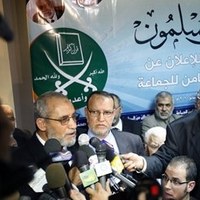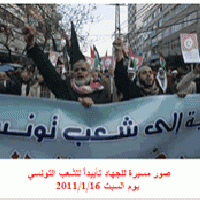![]()
Sept 14, 2010 | Cagaptay.com | Hürriyet Daily News | By Soner Cagaptay
Torn Turkey, European Turkey
Sam Huntington was right to consider Turkey his chief example of a “torn country.” The results of the Sept. 12 vote on the constitutional amendments proposed by the ruling Islamist-rooted Justice and Development Party, or AKP, show that officially secular Turkey is torn not just between the East and the West, but that it is also divided internally.
The amendments, which among other things allow the AKP to appoint a majority of the judges to the high courts, enable the governing party to consolidate its power. Though the amendments passed by 58 percent, 42 percent of Turks, over thirty-two million people, said no to the AKP. The split is indeed serious, as well as regionalized: The AKP was rejected in all Turkish provinces along the densely populated and prosperous Aegean and Mediterranean coastlines, as well as in Thrace, and in middle-class districts of large cities. Conversely, voters from lower middle-class urban areas as well as those in the Central and Eastern Anatolian provinces supported the party at rates reaching 75 percent.
Moreover, nationalist Kurds boycotted the AKP in droves, heeding the call of the Kurdish nationalist Peace and Democracy Party, or BDP, to skip the referendum in protest of the AKP’s Kurdish policy or lack thereof: in southeastern Hakkari province along the Iranian and Iraqi borders, for example, only 7 percent of the people went to the polls. Although many Kurds in Eastern Turkey and along the Euphrates Valley, as well as those in the large cities – more than half of Turkey’s Kurds now live in metropolitan Western Turkey – did not follow the BDP’s call, in extreme southeastern Turkey, a bastion of hard Kurdish nationalism, the boycott worked. In a number of provinces in this region, a majority of the voters abstained from voting.
Herein lies the challenge for perhaps the world’s most important ongoing political experiment: can the AKP, which came to power in 2002 by promoting its vision of a democratic European Turkey, unite the country despite the divisions between secularists and Islamists and between Kurdish nationalists and supporters of a unified Turkey? Can the AKP win the trust of almost thirty-five million opponents?
The AKP has long suggested that the secular military and the courts were undemocratically blocking its power and reforms on the way to Europe. The party has now jettisoned both of these institutions. Following allegations of a coup plot involving military officers the Turkish military has withdrawn to its barracks. Now, the courts will be reshaped in the image of the conservative-cum-Islamist AKP.
The party also wields influence over the powerful secular media and business world. After eight years of hard work, the AKP’s stars are finally aligned: the party is in near control of all three branches of government and is able to coerce the Fourth Estate. For the first time since 2002, the AKP is not only governing, but is also holding the reins of power, effectively unchecked. Although the AKP has received a plurality of the vote in previous polls, Sept. 12 was a vote of confidence for the party as it garnered majority support for the first time. The real test of where the AKP wants to take Turkey begins now.
In this regard, the first test of the AKP’s commitment to a European Turkey and its ability to keep a torn Turkey whole is already in the offing. In the aftermath of the Sept. 12 vote, the AKP has already promised to draft a new constitution for Turkey. Will this new constitution form the groundwork of a liberal society? Here, the outside world should pay as much attention to what happens on the ground as it does to the party’s promises.
For instance, one of the articles that the AKP presented as a constitutional amendment on Sept. 12 pertains to the privacy of communication. This new article stipulates that personal information shall be protected. The Turkish constitution now guarantees the privacy of all communication – great news! According to news reports, however, the number of wiretapped phone calls in Turkey increased approximately 50 percent annually between 2007 and 2009 (from 63,576 in 2007 to 90,163 in 2008 to 142,135 in 2009). While passing such a progressive amendment is commendable, reality under the AKP is seemingly different.
Clearly, the world ought to consider not just whether the AKP is drafting a liberal democratic constitution, but whether it is also practicing liberal democracy.
Now that it is in full control of all political levers, the AKP may choose to dismiss its opponents and forgo liberal democracy further. However, the party may be better served accommodating these opponents and embracing democracy, considering a secular Turkey is much too large for the AKP to digest. Opinion polls that measure attitudes toward the AKP, its conservative values and the Sept. 12 vote suggest that 30-35 million Turks would never support the AKP or resolve to live in a country shaped solely by its values.
Therefore, once the AKP finishes basking in its victory, it must envision a new Turkey that is for everyone, Muslim and non-Muslim, Kurdish nationalist and unified Turkey-supporter, religious and non-religious, Islamist and secularist alike. This is indeed a very tall order. Yet, the AKP must find a new and lasting political balance for a torn Turkey. The solution is a European Turkey.



 RSS
RSS











Torn Turkey, European Turkey | #turkey #EU http://j.mp/bvUCaS
RT @CrethiPlethi: Torn Turkey, European Turkey | #turkey #EU http://j.mp/bvUCaS